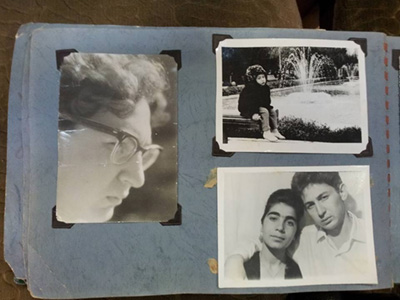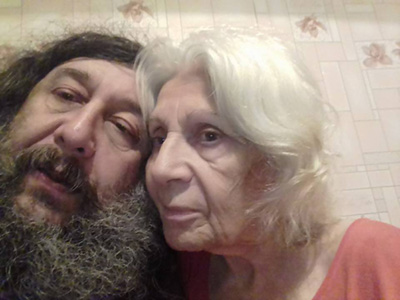YEREVAN/MOSCOW — German Lukomnikov is a Russian poet who also writes prose, palindromes and songs, as well as performer, translator, actor, anthology compiler, a master of poetic minimalism and combinatorial poetry. He was born in 1962 in Baku, in a Jewish-Armenian family: his father was poet and artist Gennady Lukomnikov. German was 13 years old, when he moved to Moscow. He has written poetry since childhood.
Lukomnikov’s works have been published in leading Russian magazines, in the anthology Samizdat of the Century (1997), in the collections Very Short Texts (2000) and Time to Give Birth (2001, 2002). He is an author of 14 books of poetry; participated in poetry slams and authors’ reading contests, being the winner of the Russian-Ukrainian slam in Lviv (2007) and in the All-Russian slam in Voronezh (2014), vice-champion of the World slam in Paris (2015), as well as of the Chukovsky Prize for Innovation in Children’s Literature (2015). He is one of the compilers of the Anthology of the Russian Palindrome, Combinatorial and Handwritten Poetry (2002) and Russian Poems of 1950–2000 (2010). German Lukomnikov’s works have been translated into 12 languages.
Dear German, for several years I have been following your work. It is pleasant and funny to hear how you read your extraordinary poems — there is humor, positivity and surprises in them. I even tried to translate some couplets and quatrains into Armenian, although many of them are virtually untranslatable.
I am glad you are interested in my works and you are trying to translate them into Armenian. By the way, in the anthology of the poetry of Russian minimalism, published in translations into Armenian in Stepanakert several years ago, there is also selection from my works. It was compiled and translated by poet Hrant Aleksanyan. It is curious that the only Wikipedia article about my person, apart from Russian, is Armenian.
Not surprisingly, we are sensitive and attentive to our compatriots — no matter how many percent of Armenian blood and their links to Armenia. But you also spoke about your Armenian origin in the form of a palindrome — “Iz armyan ya, mrazi” (“I am from Armenians, scums”). It is especially interesting that, without knowing Armenian, you composed a palindrome in Armenian – “Ara, sus ara” (“Chap, shut up!”).
Gee, I forgot about “Ara, sus ara”! Thank you for reminding me! This is what my Armenian Metz-mama (grandmother), used to say. It was only after several decades I realized that it was a palindrome and decided to write it down and include it in the corpus of my texts as a kind of “ready-made” work. By the way, I recently composed another Armenian palindrome! It is, of course, conventionally Armenian. Roughly like “Armenian jokes.”










